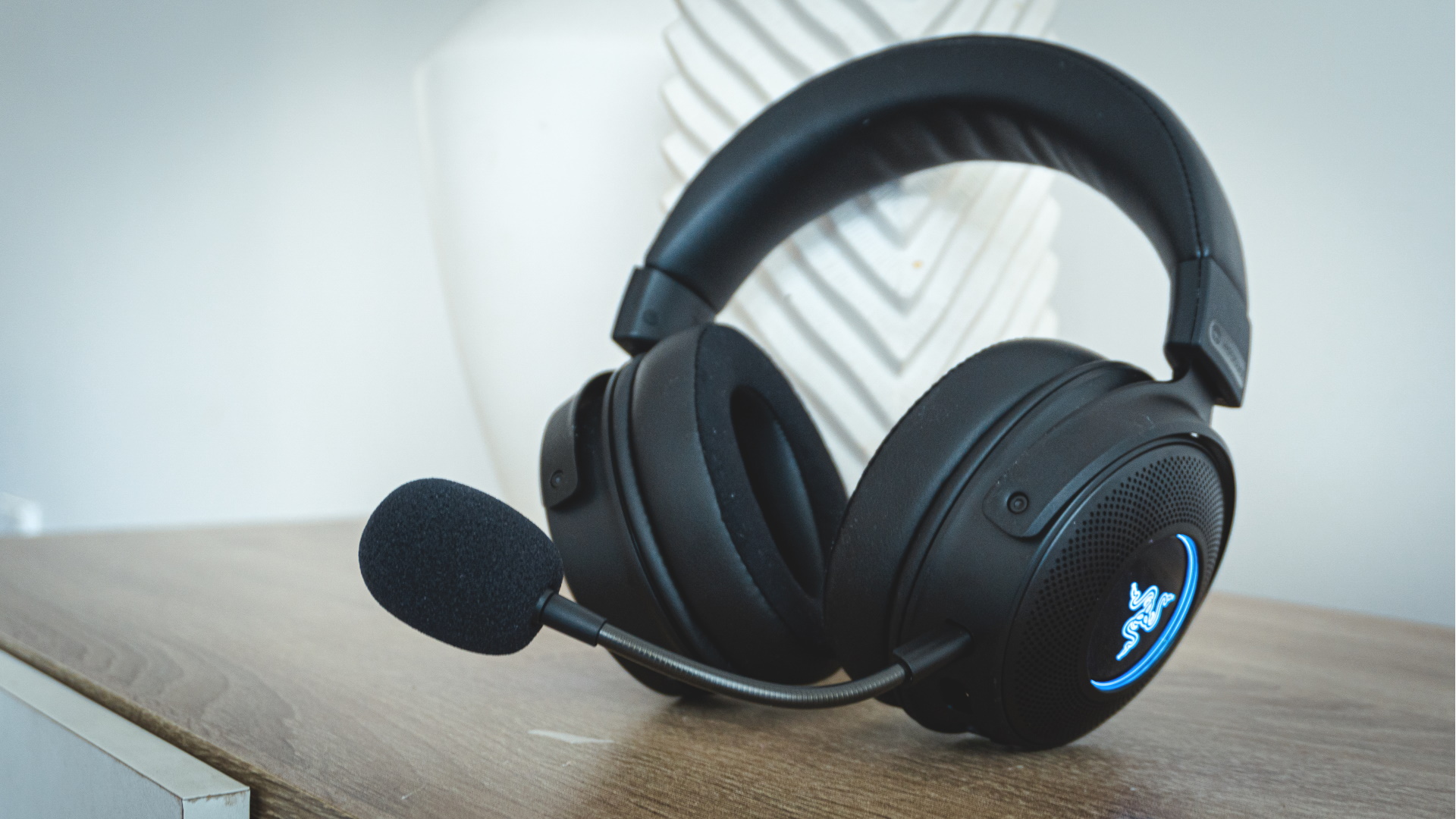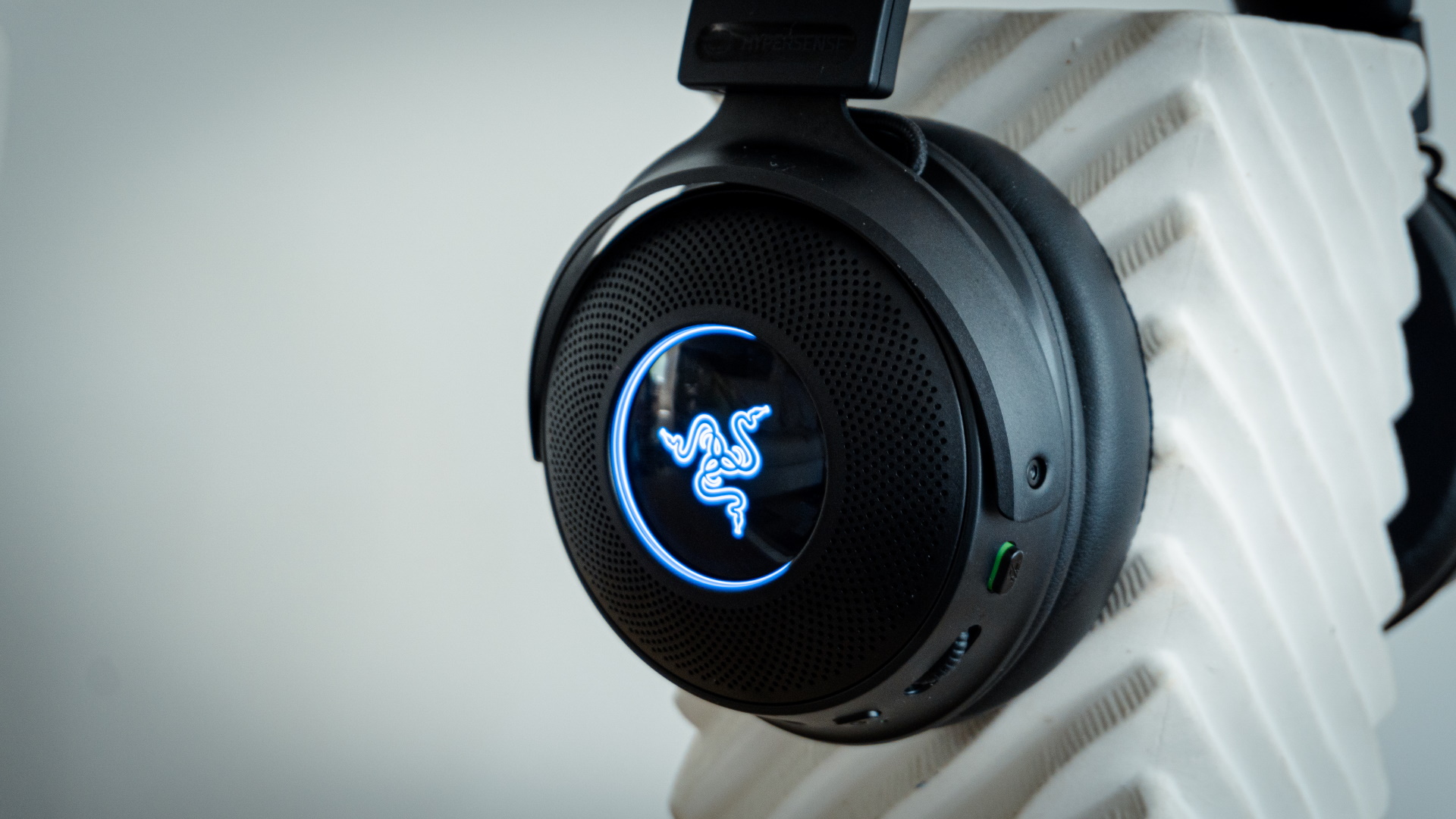Our Verdict
The Kraken V3 Pro is almost identical to its sibling, the V3 HyperSense, except it cuts the cord for a wire-free experience. Oh and costs a chunk more.
For
- Wireless rumbles!
- All-round fantastic audio
- Solid design with classy looks
- Very comfortable
Against
- Not much different from the cheaper Kraken V3 HyperSense
- Short Battery life with everything running
- No Bluetooth
PC Gamer's got your back
The brand-new Kraken V3 Pro is practically identical to the Razer Kraken V3 HyperSense. They share the same handsome design, excellent audio, comfort, and 50mm Triforce drivers. The Pro does have a slightly better mic, but that's about it. This means that for better or for worse, they share all the highs and lows that my colleague Reece outlined in his review. As is customary, the Pro moniker on any Razer product means the best of the best features, which primarily here means wireless connectivity.
Retailing at $199 which is $70 more than the HyperSense, the Kraken V3 Pro toes the line for what I consider a 'professional gaming headset'. Hell, it doesn’t even have Bluetooth for dual-mode wireless like some of the best gaming headsets. However, unlike the V3 HyperSense, the Pro does at least allow you to connect to non-compatible devices via a removable 3.5mm cable while still enjoying the haptics. This allows us Xbox owners to also enjoy the haptics as long as the headset is powered. Windows PCs, Macs, and even the PlayStation 4 and 5 work flawlessly with the Pro.
Being wireless, with HyperSense haptics and RGB lighting you need a solid battery to keep things ticking along. If you leave all the bells and whistles turned on, the V3 Pro will last a meager 10–12 hours in my testing.
Turn off all the haptics and lighting, and the headset will last much longer at 44 hours, which is much more satisfactory. You can average it out to about 20 hours with a smart mix of haptics on for games and off for music or work calls. And you'll sound great thanks to that removable HyperClear supercardioid mic. Vocals are clean and natural sounding with plenty of fine-tuning available in Razer Synapse software.
Like the V3 HyperSense, the Pro sounds fantastic in games and other media. The audio is clean and powerful thanks to those 50mm Triforce drivers that utilize three separate drivers for the highs, mids, and lows. The base imaging is excellent for in-game accuracy but it's the THX Spatial audio that takes things up a higher notch, especially in supported games like Call of Duty: Warzone and Forza Horizon 5. It's one of the better surround sound implementations and you can dial in your preferences via Razer Synapse.
The haptic drivers on the V3 Pro are exactly the same as the V3 HyperSense meaning immersion is improved by letting you feel audio rather than just hear it. Low-end frequencies are translated into appropriate vibrations of the ear cups. However, since the haptic cues aren't built into the game's programming, the DSP onboard is left to guess, which is often hit or miss.
In some games, like Dying Light 2, the haptics are excellent, matching beat for beat with my gunshots and explosions. In other games like Doom Eternal, it can be a rumbling, headache-inducing mess. It's the same in CoD: Warzone, where the haptics destroyed my concentration and aim while also clouding the footsteps of my enemies.
It’s near impossible to properly ping enemy footsteps when the HyperSense is active so keep that in mind. The haptic works best in story-driven, or slower-paced games that don't have so much riding on audio accuracy. Voices in the game or on chat also activate the haptics which is an unpleasant way to listen to your mates. Razer needs to do some work to filter out voice frequencies but it's safe to say, the highest setting of the haptics is unusable for most things unless you want a mild concussion.
However, it's while listening to music that I really appreciated the haptics which adds texture and power to almost any track. This is because it feels like you are listening to a stereo system with a powerful subwoofer. Hip-hop, lo-fi, and trap really benefit from the haptics but I was surprised that some orchestral film scores also elicited a happy rumbling of the headset.
One problem is that the haptics can muddy the low end since they shake the Triforce drivers more than they're supposed to. Most people will prefer to listen to music with the haptics at low to medium settings or even off, depending on what you listen to.

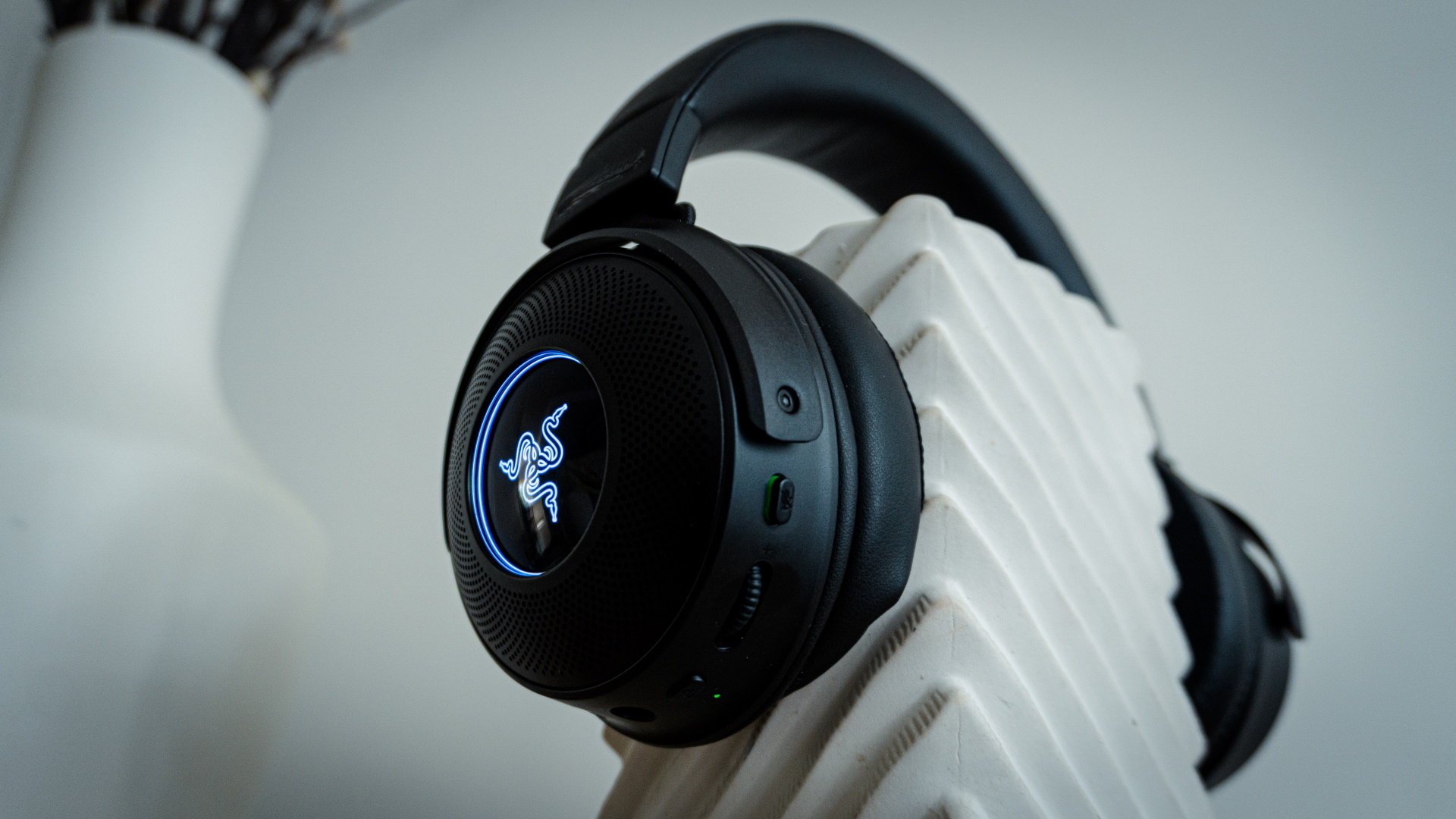
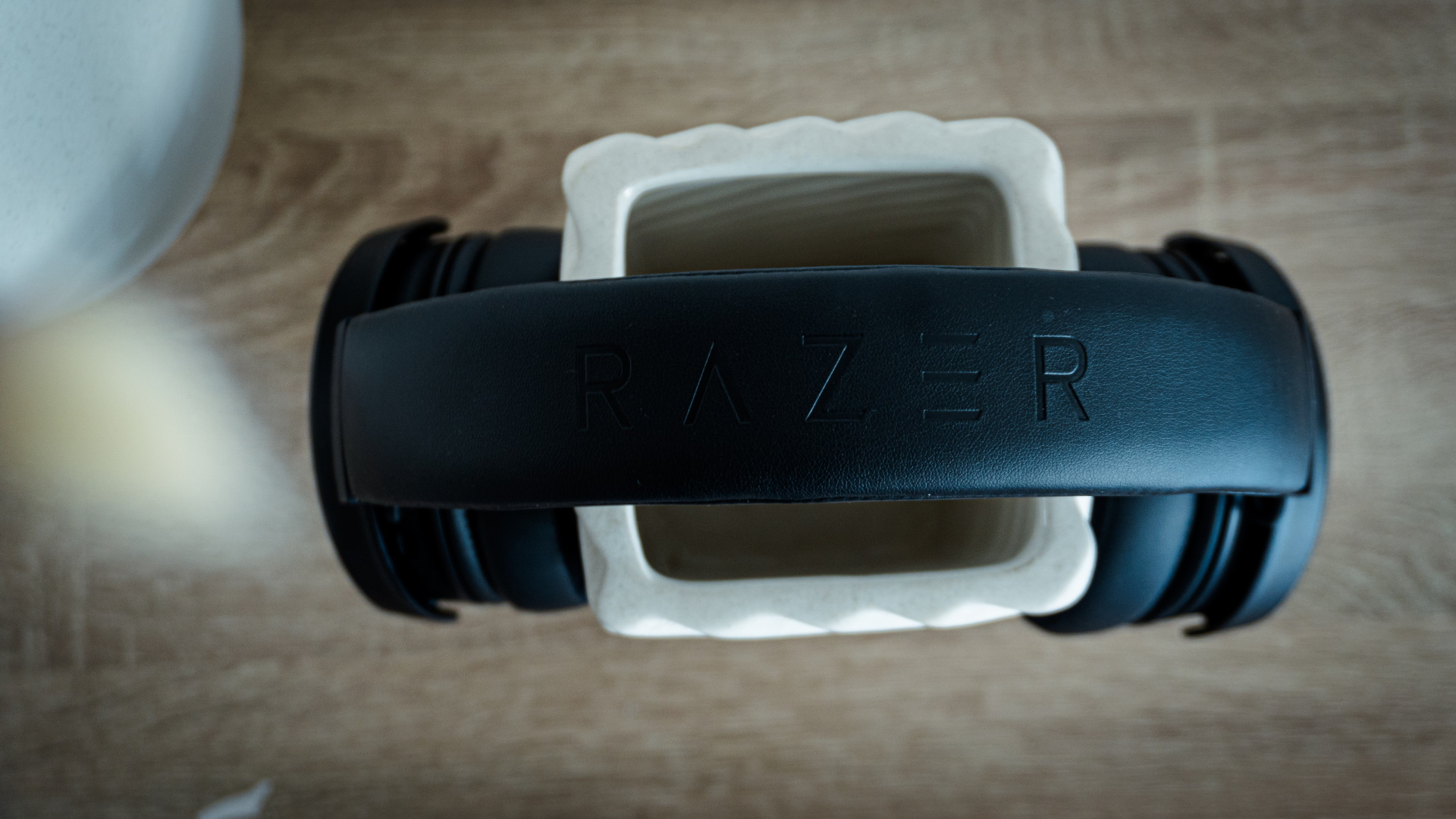
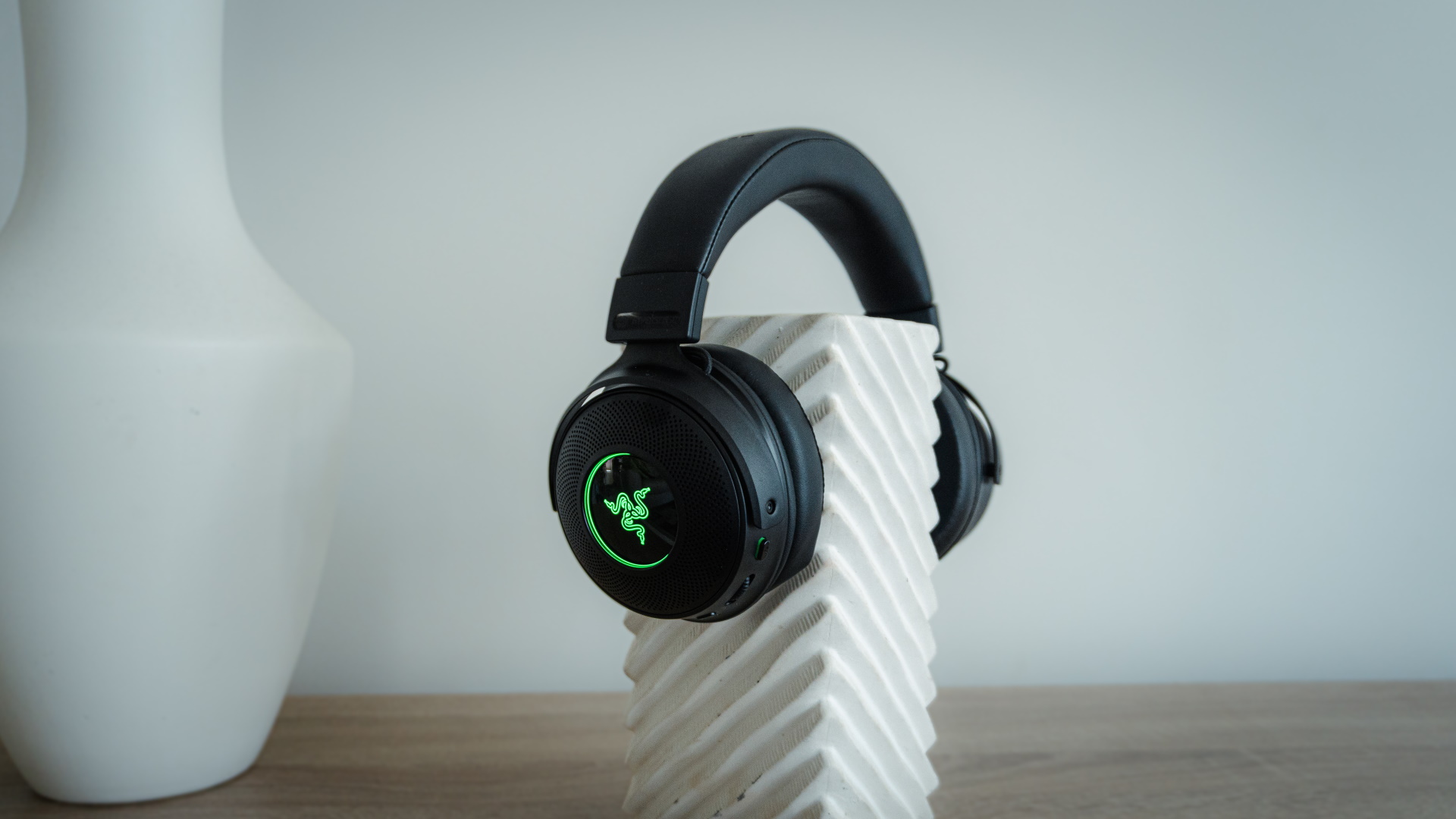
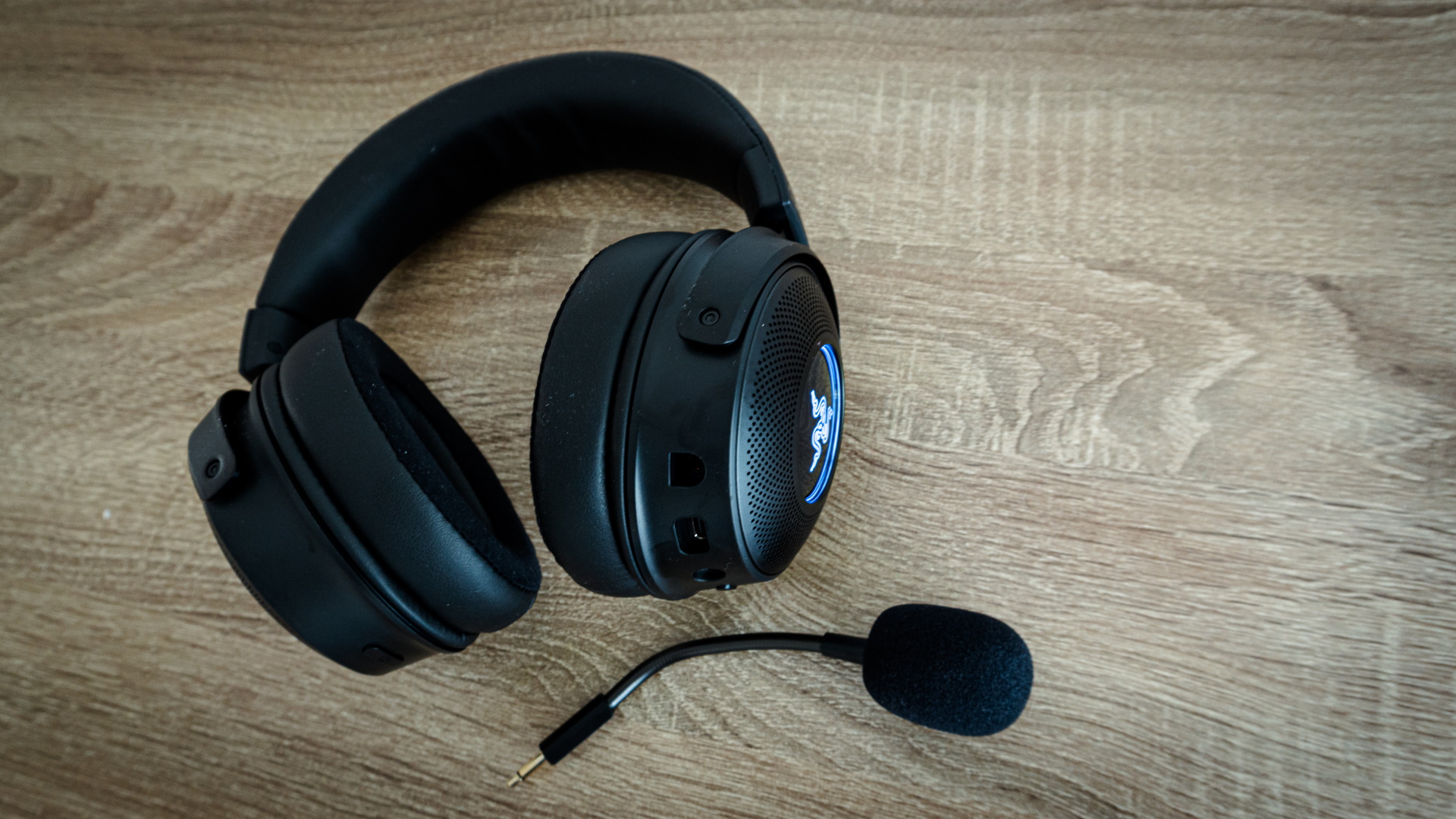
The Razer Kraken V3 Pro is one of the most intriguing headsets I’ve reviewed in a long, long time. The haptics are something you won't find on any other headset and even though it doesn’t always work, it's capable of giving you a truly unique audio experience. I would never use these for competitive gaming but definitely for some Elden Ring or Snoop Dog beats. The Pro is the crown jewel of the Kraken family in every way, but for most people, the cheaper V3 HyperSense makes far more sense financially.
The Kraken V3 Pro is almost identical to its sibling, the V3 HyperSense, except it cuts the cord for a wire-free experience. Oh and costs a chunk more.
Kizzy is the consummate geek, with black turtleneck design sensibilities, always on the hunt for the latest, greatest, and sexiest tech. He's played Doom on the OG Pentium and still remembers how to hack a dial-a-phone. After four decades of being crazy about tech, he's literally just getting started. It's the age of the geek, baby!
